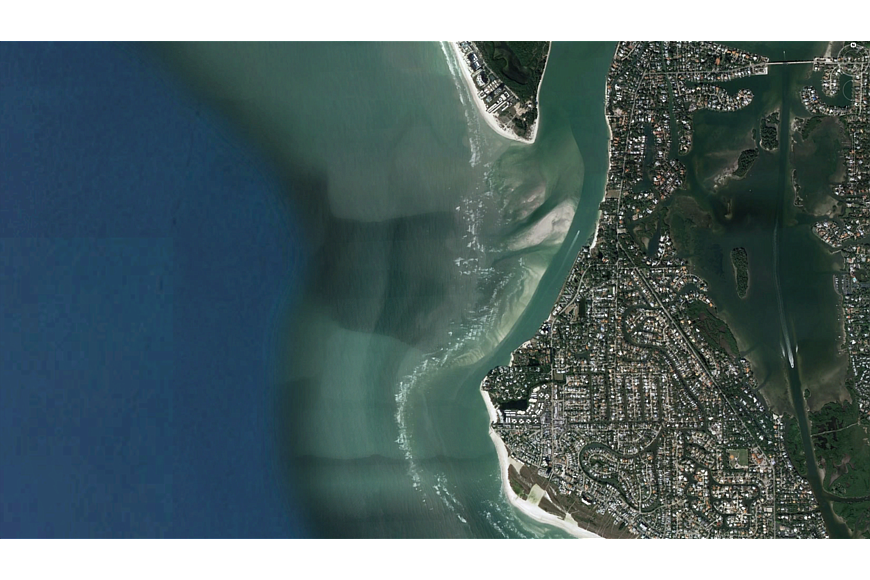- January 31, 2026
-
-
Loading

Loading

A judge in the 12th Judicial Circuit denied the Siesta Key Association’s efforts to challenge the planned dredging of Big Pass, determining the city had not failed to meet a legal obligation as it pursues a Lido Key shoreline renourishment project.
The decision removes an obstacle for the contentious dredging effort, which the city is undertaking in partnership with the U.S. Army Corps of Engineers. The plans call for the use of sand from Big Pass, which has never been dredged, to replenish portions of the Lido shoreline to the north The project team hopes to begin work later this year or in early 2020.
Judge Andrea McHugh’s decision, issued Thursday, rejects a key argument from the Siesta Key resident group: that city regulations required officials to produce an official determination stating the project was consistent with the city’s comprehensive plan. McHugh found no issue with the city’s efforts to obtain a permit from the state authorizing the dredging.
“The court understands [the Siesta Key Association’s] frustration over having no legal vehicle to challenge the aforementioned project under Chapter 163, Florida Statutes," the decision stated. “However, that circumstance does not create a legal duty on the part of the city to issue a developmental order or consistency determination.”
In an email to other city officials Thursday, city manager Tom Barwin called the order “welcome news” and said it moved the renourishment effort closer to implementation.
“This appears to bring to closure all local legal objections,” Barwin wrote. “I think this confirms our staff and legal advisors have been compliant with all local laws and regulations and professional as they have navigated this complex and multi-year project.”
The ruling is the third time in the past 12 months McHugh has rejected the Siesta Key Association’s attempts to block the advancement of the dredging project.
Although the judge said the Siesta Key Association had standing to seek a writ of mandamus — an order compelling a governmental body to comply with a legal duty — she determined the association failed to identify a legal duty the city had not carried out. McHugh said city staff was within its rights to determine the city's comprehensive plan did not require the city to issue a consistency determination for the project.
McHugh’s decision also notes the Siesta Key Association had another option for contesting the project. The association challenged the state’s decision to issue a permit for the dredging in the Florida Division of Administrative Hearings. In 2018, a judge recommended issuing the permit, rejecting the association’s case.
“In addition to finding the city had no legal duty to issue a developmental order or consistency determination, the court finds that [the Siesta Key Association] had an adequate remedy at law in the DOAH proceedings, preventing a mandamus order,” the decision stated.
Carl Shoffstall, president of the Lido Key Residents Association, said he was excited about the ruling. Still, he expressed dismay at the length of time the project was contested in court, calling the legal battle a costly endeavor for the resident group. He said the project was designed to improve the Lido shoreline without negatively affecting Siesta Key — a point of contention among Siesta residents — and was disappointed about having to go through multiple rounds of legal challenges he considered unnecessary.
“There was no reason to do this,” Shoffstal said. “[The project is] for the benefit and betterment of the entire west coast of Florida.”
A representative for the Siesta Key Association could not immediately be reached for comment.
Some work remains before the dredging of Big Pass can begin. The Army Corps failed to obtain a satisfactory bid earlier this year when it sought a construction company to undertake the project. In August, city officials said the Army Corps was in the process of revising its bid solicitation in hopes of securing a lower price.
One legal challenge to the project still remains unsettled. Save our Siesta Sand 2, a Siesta Key resident group formed in response to the proposed dredging, filed a federal lawsuit in January objecting to the plans.
This is a developing story and will be updated as more information becomes available.